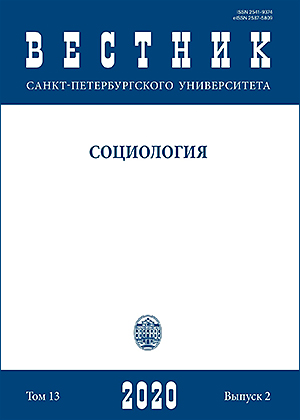From incentive to self-organization: The evolution of management approaches
DOI:
https://doi.org/10.21638/spbu12.2020.203Abstract
This article is an overview of approaches to managing labor motivation Evolution from classical Taylorism to modern agile methods. The author considers the main approaches to work motivation in the context of their relationship with the basic principles of the agile. In the 20th century management evolved from simple forms to complex hierarchical organization, depersonalization and bureaucratization of business processes until it became a hindrance to development
and competitiveness. After that the reverse movement begins — towards a flatter management structure and proclamation of the priority of “people and relationships” in relation to “processes and tools”, to “motivation without stimulation”. The logic regarding employee motivation has undergone changes: from the idea that motivation can and should be controlled with external incentives to the belief that any attempt to exert external influence can demotivate employees. The author has developed a typology of approaches to work motivation based on the severity of two components in the theory: “system — actor”; and “stimulation — self-organization”. The system-actor dichotomy shows how the theory explains labor motivation: focusing attention on the control system or on the individual characteristics of the actor, needs or work values. The dichotomy “stimulation — self-organization” explains how it is supposed to influence the motivation of an individual or group: through targeted stimulation or the creation of conditions for self-organization. These dichotomies were chosen to highlight the typology in connection with their importance for the agile approach. The article focuses on three aspects of motivation: material incentives, social environment, labor content. These aspects are of the greatest importance for agile management, and a focus on them allows you to see the fundamental differences between agile practices and traditional management approaches.
Keywords:
motivation, work values, agile, social group, involvement, self-organization, attitudes
Downloads
References
References
Downloads
Published
How to Cite
Issue
Section
License
Articles of "Vestnik of Saint Petersburg University. Sociology" are open access distributed under the terms of the License Agreement with Saint Petersburg State University, which permits to the authors unrestricted distribution and self-archiving free of charge.




